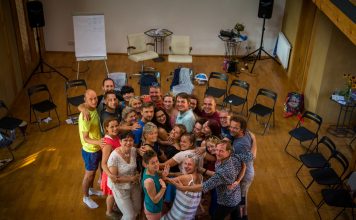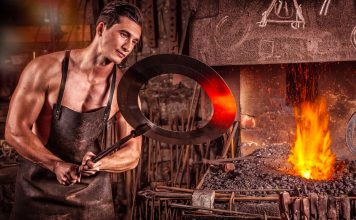BMW was quick to appreciate the unique status of its Mille Miglia cars following the victory in 1940, and they were soon moved out of Munich into a rural hideaway to save them from potential destruction during the Second World War. The evacuation was successful, with all five surviving the hostilities essentially unscathed. However, in the upheaval of the immediate post-war period BMW lost track of the cars. With Allied soldiers scouring Germany for rare racing cars, it was hardly surprising that the three Mille Miglia Roadsters resurfaced in Russia, England and America. The winning Touring Coupé from 1940 was initially seized by the Americans before being whisked away by a senior BMW employee. However, it also found its way across the Atlantic when the employee decided to emigrate.
Only the Kamm Coupé remained in Germany, former BMW Director of Racing Ernst Loof having acquired the car for his personal use. By this time he had become a manufacturer in his own right, supplying speedy Veritas racing sports cars to customers in a resurgent post-war Germany. However, he also laboured consistently under financial woes and a few years later he was forced to part company with the Kamm Coupé. Sadly, this automotive gem was not blessed with a long life under its new owner, succumbing to the scrap heap after an accident in the early 1950s.
There was certainly no denying the historical value of this very special car and, after BMW founded BMW Mobile Tradition in the mid-1990s to oversee an extended reappraisal of the company’s history, plans were put together to build a reproduction. But the resurrection project proved to be a tricky undertaking. All design drawings for the car seemed to have disappeared into thin air and there was hardly a rich supply of historical photos around either. It was only with the hands-on assistance of a private collector in Munich that the project team were able to gather together a much larger selection of photos showing the car from a wide variety of angles. Indeed, these even included a good number of shots detailing the car’s tubular frame construction.
Now it was time to tackle the exacting task of piecing together a likeness of the complete car from the available information. Computer specialists in the design department embraced the challenge. They started by scanning in the most detailed photos to use as a basis for a 3D geometry program. Then the few reliable constants, such as the wheel rim diameters, wheel offset, headlight size, door handles, wing nuts, indicators and BMW logos, were added until they appeared in the same position in every projection. Every image provided a fresh series of reference points for wheel arches, windows and other parts linked to the fixed constants. Gradually, the well of information deepened until the experts were able to produce a virtual solid model, in which every detail looked right in every view of the car. This was used to generate a program for a five-axis milling machine, which would cut an original-size model from a massive block of highly compacted foam.
A restorer was then commissioned to stretch an original BMW chassis by 20 cm and build a steel space frame according to the templates provided by the photos. However, not long afterwards the project was put on ice. As part of the concept design process for the new BMW Museum an idea was floated of rebuilding the intricate Elektron space frame of the Kamm Coupé as a showpiece for the “Lightweight design” area of the museum. An exact copy of the original space frame was duly produced with the help of a specialist based near Munich. Aluminium was chosen as the material in place of the original Elektron, and the frame’s weight duly came very close to that of the original. Although this display frame was never intended to be used in an actual car, the Kamm Coupé idea remained on the table. In the end, it was a project initiated by the Meisterschule für Karosserie- und Fahrzeugbau Leipzig-Leisnig-Erlbach (master craftsmen’’s college for body and vehicle construction serving Leipzig, Leisnig and Erlbach) in partnership with the BMW plant in Leipzig that got the ball rolling.
The original plan was to cover the existing steel space frame with aluminium body panels to replicate the external appearance of the car at least. The Meisterschule produced moulds of the foam model in which the panels of the outer skin could be shaped. The finished body has since been on display at the Leipzig plant.
With the 70th anniversary of the Mille Miglia victory fast approaching, BMW Classic was determined to bring its plan to recreate the Kamm Coupé to fruition. However, highly skilled specialists were required to turn the collection of individual parts into a car that could actually be driven. With his excellent BMW 328 Touring Coupé and Mille Miglia Roadster restorations for the new BMW Museum still fresh in the mind, it was clear that René Große – based in Wusterwitz in the state of Brandenburg – would be the right man for the job.
Große used the foam model as the basis for a glass fibre-reinforced plastic mould. This was then shaped (with the help of additional wooden elements) into a strong casing which was split down the middle into two parts. The 25 mm-diameter tubes for the space frame – made from an aluminium alloy that allowed work-hardening – were then fitted into these two half-shells. Extreme precision was the order of the day here, as no corrections could subsequently be made to the outer skin. All this endeavour was aimed at ensuring that the frame would get close to the 30 kg weight of the original. For the outer skin, the team used pure aluminium body panels from a second set supplied by the Meisterschule. The newly made panels for the inside – for the inner front wings, bulkhead, double floor section of the body, dashboard and fuel tank, for example – then had to be integrated into the mould.
The body experts in René Große’s team called on all their skill and experience to fit the body to the space frame. An interesting detail of the construction were the 40-mm-wide aluminium strips which were welded to the frame at the outer edges of the metal skin. The outer skin was then edged inwards around these strips to a width of a few millimetres to achieve the visually intricate edges on the bonnet, windows, doors and wheel arches. This detail, like the design of the bonnet hinge and door hinges, had been patented by BMW. And that meant there were sketches available which enabled the team to render the new parts as close as possible to their original templates.
Other challenges included the technical tweaks which set the Kamm Coupé apart from its series-produced siblings, such as the set-back radiator, engine and transmission, modified rear axle and a host of other alterations requiring meticulous detailing.
The BMW 328 Kamm Coupé was finally handed over to BMW Classic in a brief ceremony in March 2010. That left only a short amount of time to prepare the newly created racing car for its big day at the 2010 Mille Miglia – 70 years after its last, memorable appearance in the race.


































